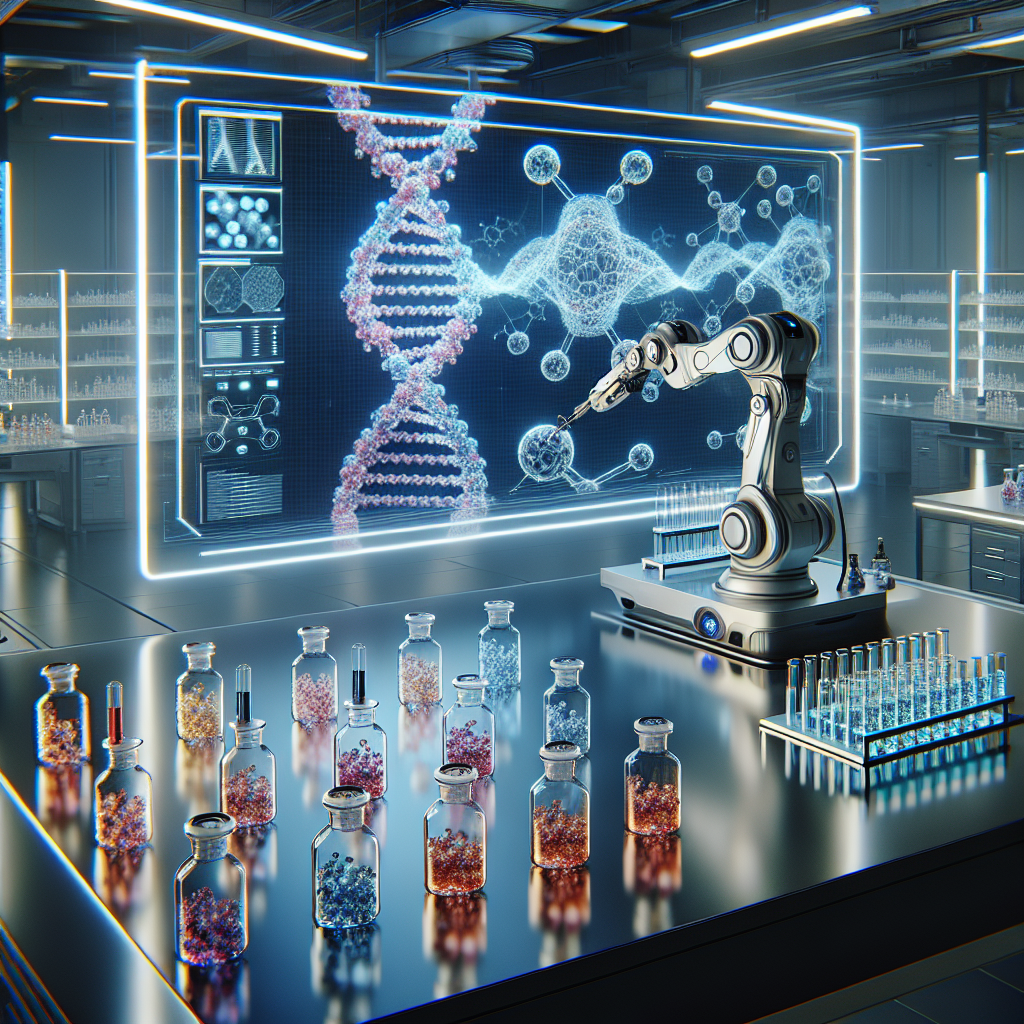Artificial Intelligence in Drug Development
Artificial intelligence (AI) has revolutionized numerous fields, and drug development is no exception. As the pharmaceutical industry grapples with the challenges of time-consuming processes and high costs, AI emerges as a beacon of hope. This blog post delves into the transformative role of AI in drug development, its benefits, and the challenges it faces.
The Need for AI in Drug Development
The traditional process of drug development can often take over a decade and cost billions of dollars. With such extensive requirements, the industry is under pressure to innovate more efficiently. Several factors contribute to this urgency:
1. High Failure Rates
Despite rigorous testing and development, the failure rate for new drugs remains alarmingly high. Approximately 90% of drugs that enter clinical trials do not make it to the market. AI can help mitigate these risks by facilitating better predictions about a compound’s efficacy and safety before clinical trials even begin.
2. Increasing Complexity of Diseases
Modern medicine faces an increasing complexity in diseases like cancer, Alzheimer’s, and autoimmune conditions. The multifaceted nature of these diseases demands a more sophisticated approach to drug discovery — and AI is uniquely positioned to analyze vast datasets and identify potential therapeutic targets.
3. Rising Costs
With the costs of drug development skyrocketing, the need for a more efficient method is pressing. AI has the potential to significantly reduce costs by streamlining various stages of drug discovery, from target identification to preclinical testing.
The Role of AI in Drug Development
AI technologies can be employed at various stages of the drug discovery process, leading to faster and more effective outcomes.
1. Drug Discovery
AI algorithms can analyze large datasets to identify new drug candidates. Machine learning models can predict how different compounds will interact with biological targets, allowing researchers to focus on the most promising candidates early in the process.
Virtual screening powered by AI allows researchers to evaluate millions of compounds in a fraction of the time it would take using conventional methods. This accelerates the identification of active compounds that can be further developed into drugs.
2. Preclinical Testing
Once potential drug candidates are identified, AI facilitates preclinical testing by predicting their toxicity and efficacy. Machine learning algorithms can analyze existing biological data to forecast how a compound will behave in the human body, thereby reducing the reliance on animal models.
This process not only accelerates drug development but also aligns with ethical considerations regarding animal testing.
3. Clinical Trials
AI can enhance the efficiency of clinical trials in several ways. For instance, AI algorithms can help in patient recruitment by identifying suitable candidates based on their medical history, genetic background, and other relevant factors. This targeted approach can lead to more effective trials and potentially faster results.
Additionally, AI can monitor patient data in real-time, identifying adverse effects or patterns that may not be evident to human researchers. This enables timely interventions, improving participant safety and data integrity.
4. Post-Market Surveillance
The role of AI does not end with drug approval. Post-market surveillance is crucial for monitoring a drug’s long-term safety and effectiveness. AI tools can analyze data from various sources, including social media, electronic health records, and clinical reports, to identify potential issues that may arise once a drug is on the market.
This continuous monitoring can lead to quicker identification of adverse effects and prompt regulatory actions, ensuring patient safety.
Benefits of AI in Drug Development
The integration of AI into drug development offers numerous benefits:
1. Increased Efficiency
AI speeds up various phases of drug development, from discovery to clinical trials, leading to faster time-to-market for new treatments. This efficiency is vital, especially for addressing urgent public health concerns.
2. Cost Reduction
By streamlining processes and reducing the need for extensive trial-and-error approaches, AI can significantly lower the costs associated with drug development. This can make medications more affordable and accessible to patients.
3. Enhanced Precision
AI’s ability to analyze complex datasets allows for more precise predictions about drug interactions and patient responses. This precision can lead to the development of personalized medicines that cater to individual needs.
4. Improved Safety
With AI’s predictive capabilities, potential safety issues can be identified earlier in the development process, reducing the likelihood of adverse effects once a drug is introduced to the market.
Challenges and Limitations of AI in Drug Development
Despite the numerous advantages, the implementation of AI in drug development is not without its challenges:
1. Data Quality and Availability
AI systems rely heavily on high-quality, comprehensive datasets. In many instances, existing data may be incomplete, biased, or not readily available for analysis. Efforts must be made to improve data collection and accessibility to maximize AI’s potential.
2. Regulatory Hurdles
The regulatory landscape surrounding AI in drug development is still evolving. Regulatory bodies must establish guidelines that ensure AI applications are safe, effective, and transparent while fostering innovation.
3. Ethical Considerations
AI’s role in drug development raises ethical questions regarding data privacy and the potential for algorithmic biases. Addressing these concerns is crucial to maintaining public trust in AI-driven solutions.
4. Integration with Existing Systems
The integration of AI technologies into existing research and development processes can pose significant challenges. Organizations must invest in the necessary infrastructure and training to ensure effective adoption.
The Future of AI in Drug Development
As technology continues to advance, the application of AI in drug development will likely become more sophisticated. Future innovations may include:
1. Comprehensive AI Systems
We may see the emergence of more comprehensive AI systems capable of managing the entire drug development process, from discovery through clinical trials and post-market surveillance.
2. Greater Collaboration
The pharmaceutical industry, academic institutions, and AI technology companies may collaborate more closely to develop and validate AI-driven solutions, fostering innovation and improving outcomes.
3. Personalized Medicine
AI’s ability to analyze vast amounts of biological and clinical data can lead to a new era of personalized medicine, where treatments are tailored to individual patients based on genetic and environmental factors.
4. Improved Patient Outcomes
Ultimately, the goal of integrating AI into drug development is to improve patient outcomes. By enhancing the speed, efficiency, and safety of drug discovery, AI can help bring innovative therapies to market that better address patients’ needs.
Conclusion
The integration of artificial intelligence in drug development is not just a passing trend; it represents a paradigm shift towards a more efficient, cost-effective, and patient-centered approach. As the industry continues to navigate the complexities of drug discovery, AI stands ready to play a pivotal role in shaping the future of medicine. By addressing the challenges and leveraging the benefits of AI, we can hope for a new age of innovative therapies that enhance the quality of life for patients around the world.



